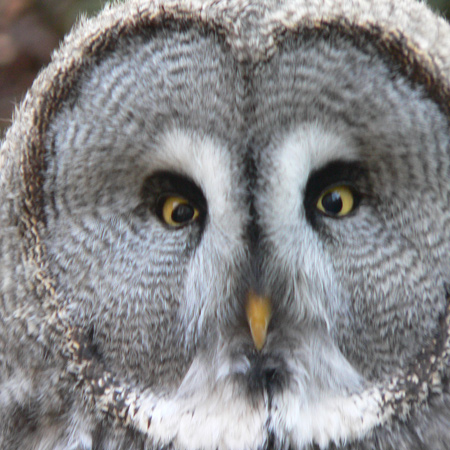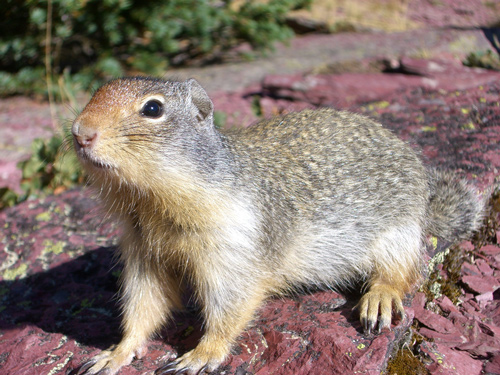At Long Camp in present-day Kamiah, Idaho, toddler Jean Baptiste‘s health improves, and Lewis‘s dog Seaman pursues a wounded deer. Lewis declares the Nez Perce method of castrating horses works better than his. Hunters bring in a few grouse and two animals new to science: the Columbian ground squirrel and great grey owl.
Pomp Ill
by Yellowstone Public Radio[1]Originally aired weekdays by Yellowstone Public Radio during the Bicentennial observance of 2003-2006. Narrated by Hal Hansen. Scripts by Whit Hansen and Ed Jacobson. Produced by Leni Holliman. © … Continue reading
Seaman Helps Hunt
Segt. Pryor wounded a deer early this morning in a lick near camp; my dog [Seaman] pursud it into the river; the two young Indian men who had remained with us all night mounted their horses [one word erased; illegible] swam the river and drove the deer into the water again; Sergt. Pryor killed it as it reached the shore on this side
—Meriwether Lewis
Great Grey Owl
Our hunters brought us a large hooting owl which differ from those of the atlantic States. The plumage of this owl is an uniform mixture of dark yellowish brown and white, in which the dark brown prodominates. it’s Colour may be properly termed a dark Iron gray. the plumage is very long and remarkably Silky and Soft.
—William Clark
Baby Charbonneau Improving
The Creem of tartar and sulpher operated several times on the child [Jean Baptiste Charbonneau] in the course of the last night, he is considerably better this morning, tho’ the swelling of the neck has abated but little; we still apply polices of onions which we renew frequently in the course of the day and night.
—Meriwether Lewis
Columbian Ground Squirrel
Labiech also brought a whisteling squerel [Columbian ground squirrel] which he had killed on it’s hole in the high plains. this squerel differs from those on the Missouri in their Colour, Size, food and the length tal and from those found near the falls of Columbia
—William Clark
Superior Nez Perce Method
all the horses which have been castrated except my poor unfortunate horse appear as if they would do very well. I am convinced that those cut by the [Nez Perce] indians will get well much soonest and they do not swell nor appear to suffer as much as those cut in the common way.—
—Meriwether Lewis
Grouse Hunters
Shannon, Colter, Labuish [Labiche], Cruzatte, Collins, and LaPage [Lepage] returned from hunting without having killed anything except a few pheasants [grouse] of the dark brown kind, which they brought with them.—
—Meriwether Lewis
Weather Diary
State of the Weather at rise
Wind at rise
State of the Weather at 4 P.M. Wind at 4 P.M. State of the Kooskooskee fair N W fair N W & S E fallen 1 ½ in. the air is cold in the morning but warm through the day. some dew each morning.
—Meriwether Lewis[2]To assist the reader of this web page, the date column is not presented, the river columns have been merged, and some abbreviations have been spelled out.
Experience the Lewis and Clark Trail
The Lewis and Clark Trail Experience—our sister site at lewisandclark.travel—connects the world to people and places on the Lewis and Clark Trail.
Plan a trip related to May 23, 1806:

Notes
| ↑1 | Originally aired weekdays by Yellowstone Public Radio during the Bicentennial observance of 2003-2006. Narrated by Hal Hansen. Scripts by Whit Hansen and Ed Jacobson. Produced by Leni Holliman. © 2003 by Yellowstone Public Radio. |
|---|---|
| ↑2 | To assist the reader of this web page, the date column is not presented, the river columns have been merged, and some abbreviations have been spelled out. |


